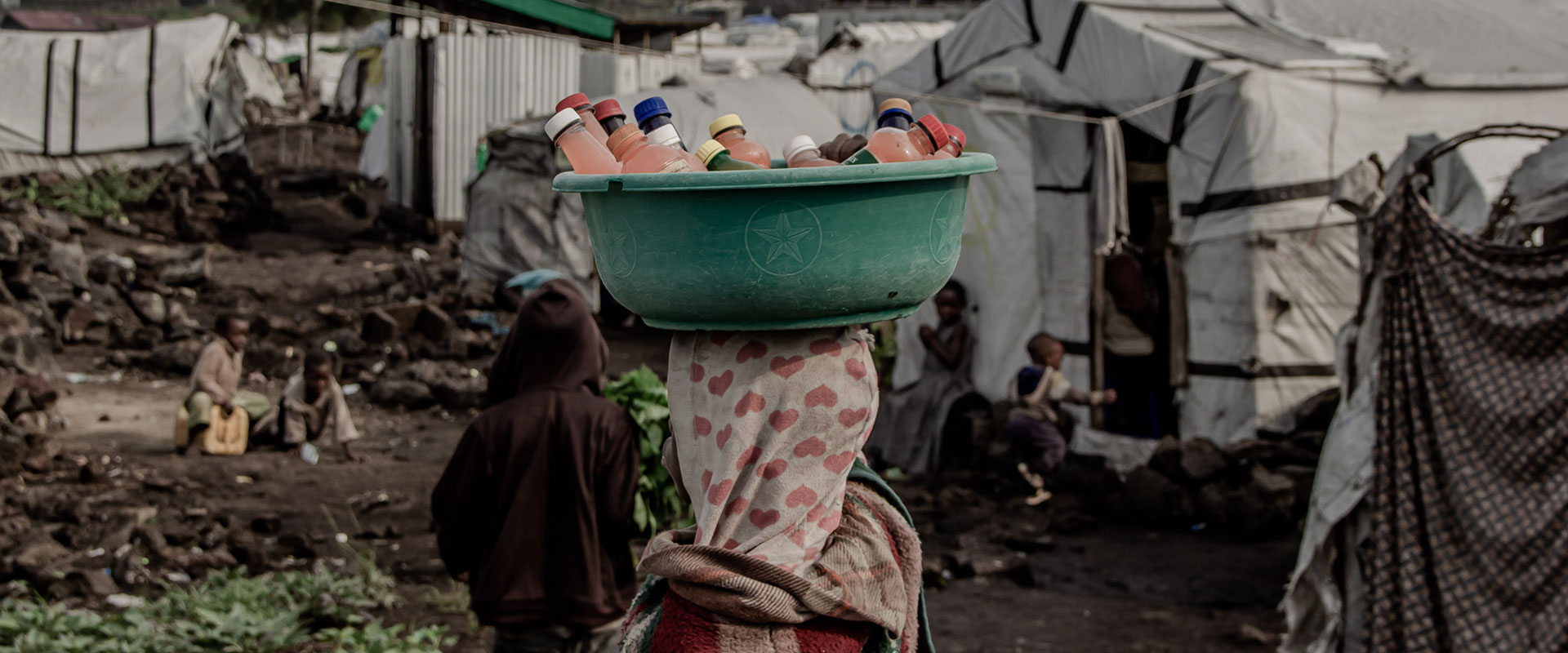Since February 2025, the cities of Goma in North Kivu and Bukavu in South Kivu, in eastern Democratic Republic of Congo, have been under the control of the M23 Movement, a rebel paramilitary group.
This has led to a complete reshuffling of local authorities and widespread security instability. Between February and August 2025, over 10,000 cases of rape and sexual violence were reported in North and South Kivu provinces, according to UNICEF. Ipas DRC has also received reports of mass rapes, sexual mutilation, and assaults committed in conflict zones or during forced displacement. Access to sexual and reproductive health care has become extremely limited, if not absent, in some areas. Women and girls who survive rape are left without medical care, psychological support, or access to essential services such as emergency contraception or sexually transmitted infections.
“The takeover of North and South Kivu by M23 has severely weakened the health system and access to abortion care for women and youth. Of the 15 health facilities Ipas supports, only three remain in government-controlled zones and are cut off from supply chains. These facilities are experiencing shortages of sexual and reproductive health medications, limiting accessibility,” says Dr. Moise Musa Byamungu, health system and social and behavior change communication officer for Ipas DRC’s Bukavu office.
Despite all these many challenges, Ipas DRC remains steadfast in our mission to bring sexual and reproductive health care to people living in these crisis settings.
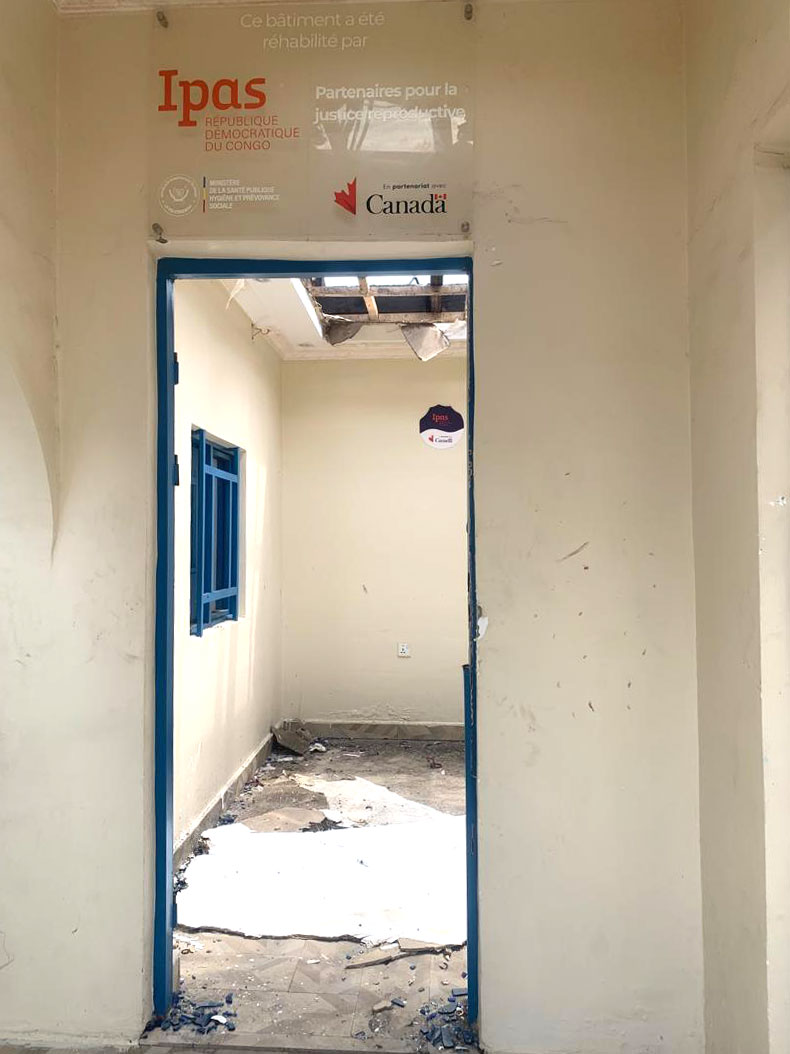
The One Stop Center looted by rebel fighters where Ipas had been providing vital reproductive health services.
A strain on community support systems
Community health workers and outreach actors have had to scale back interventions due to insecurity in these areas. The fighting has led to the dissolution of displaced persons camps, notably Bulengo in North Kivu province, and has placed immense strain on health and community support systems.
“Mukongola General Hospital in the Kabare health zone was looted twice by rebels who stole a significant amount of money intended for hospital operations. Several patients and caregivers were injured by stray bullets. A day after the looting incident, a schoolboy in uniform and four young villagers were shot dead during an exchange of fire between self-defense groups who were volunteering at the hospitals and rebels,” explains Dr. Byamungu.
Resilience in the face of security challenges
Despite logistical, political and humanitarian obstacles, Ipas DRC has continued showing up for women and girls. We have doubled our efforts to continue providing essential sexual and reproductive health services where they are most needed.
To do this effectively, we developed the following contingency plan :
- We established a community health center following the withdrawal of the military hospital.
- We are training new health professionals, and we are supporting health centers, including the one replacing the military hospital, to ensure ongoing supervision.
- We continued normal activities at other sites, except Bisengimana Hospital, where part of the staff fled to northeastern DRC or Uganda.
- We arranged temporary procurement of contraceptives through DKT International to allow continued access to contraceptives for communities. One of the greatest challenges was the disruption of the supply chain: a shortage of contraceptives due to the destruction of the United Nations Population Fund (UNFPA) site and the suspension of USAID funding.
The rapid implementation of our plan allowed for the gradual restoration of services at the health facilities we support. Except for the military hospital in North and South Kivu, which has been converted into a war casualty treatment center, all our sites are now operational.
Even in M23-administered zones, our staff’s determination has maintained an active channel of communication with government officials for the delivery of supplies, medications, and data collection materials. This work, made possible through Ipas collaboration with chief medical officers who are responsible for managing health zones, reflects our unwavering commitment.
In parallel with these security-related disruptions, Ipas DRC has navigated significant changes within our government institution partners. Despite multiple restructurings within the Provincial Health Division and the Ministry of Youth, our strategic direction remains intact. This is due in large part to our enduring partnership with the National Program for Reproductive Health, which has enabled us to sustain operational and technical collaboration with health zones. Our adaptive strategy has ensured uninterrupted service delivery and reinforced our commitment to reproductive health in fragile contexts.
Ongoing operations amid crisis: Field activities in Bukavu and South Kivu
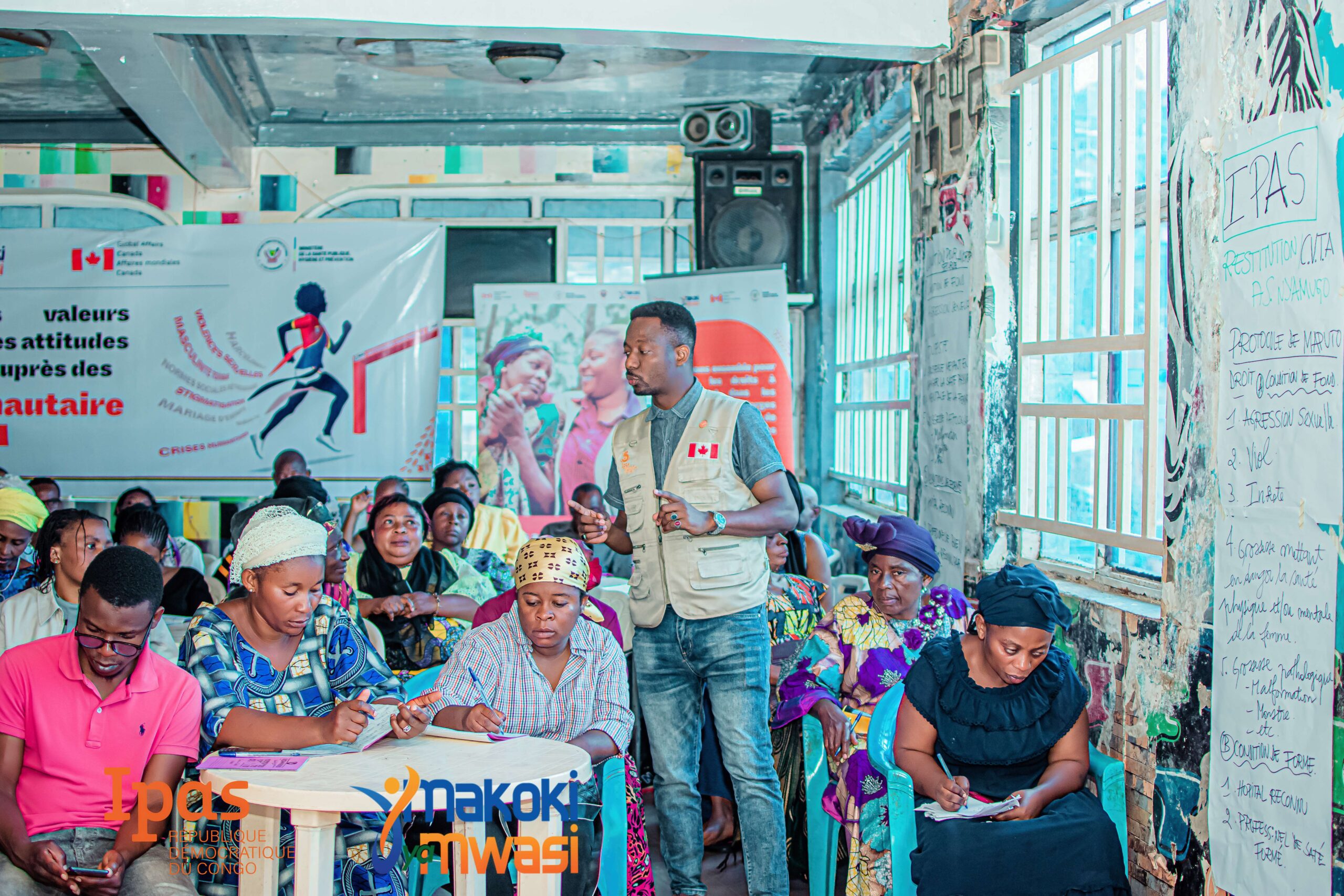
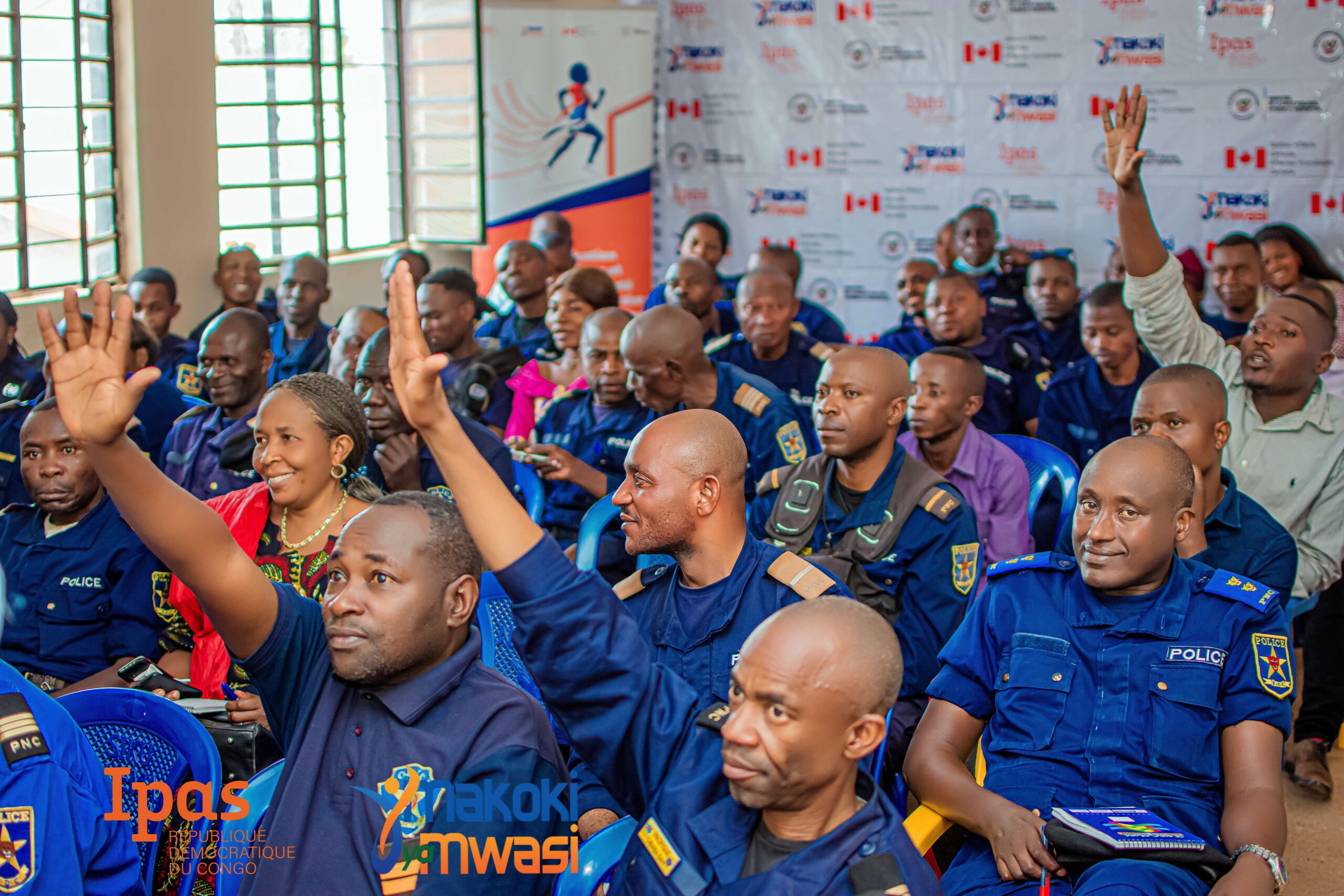
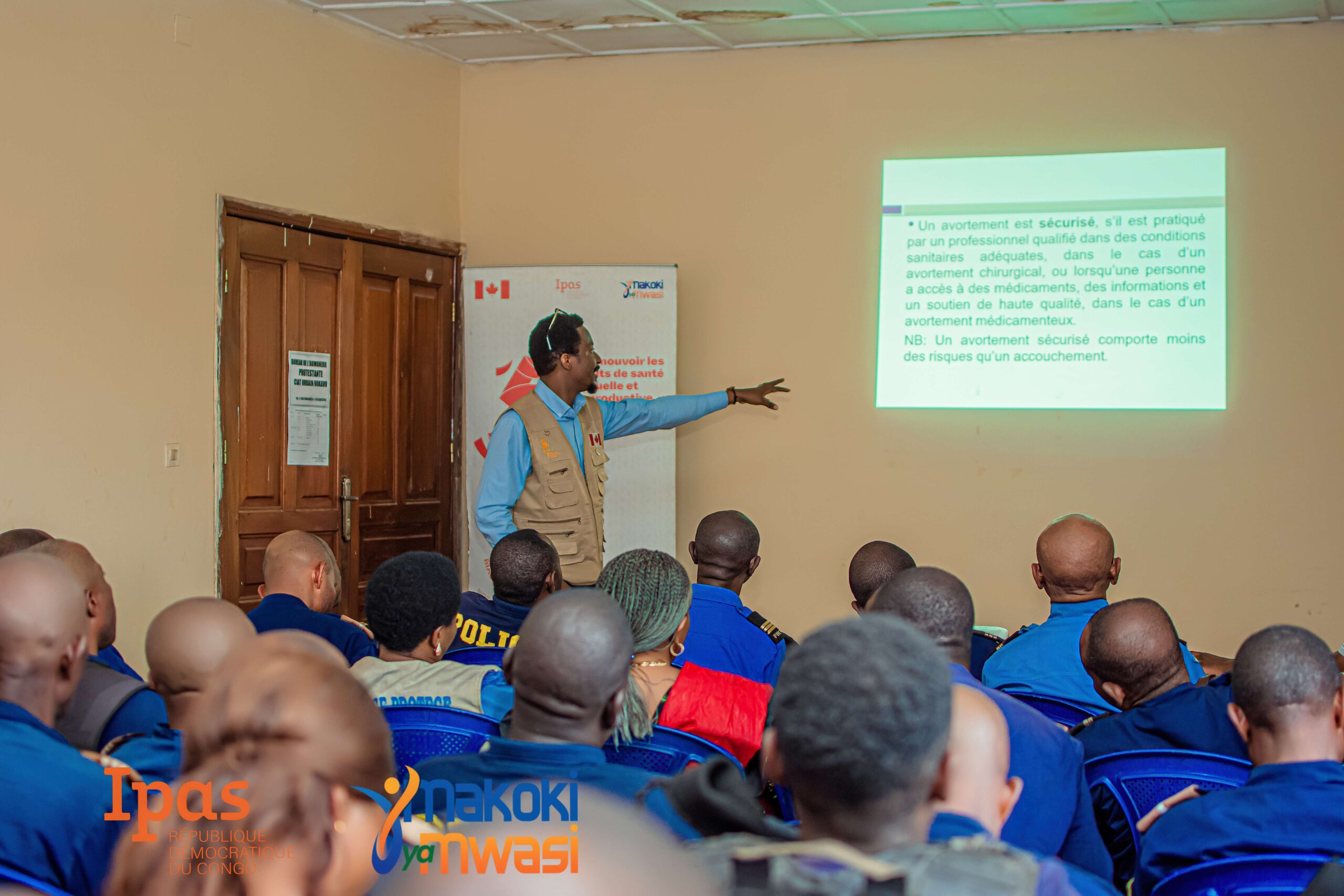
Over the past seven months, Ipas DRC has implemented targeted actions that have yielded tangible results—laying the groundwork for sustained progress and reinforcing our commitment to ensuring that conflict does not erode the rights of women and girls. While our field visits have decreased due to security concerns, our local coordination has intensified, supported by more frequent virtual engagements. This adaptive approach has preserved operational momentum while prioritizing staff safety.
Ipas DRC has significantly strengthened communication with service providers, enabling more rigorous monitoring and improved tracking of our work. We are now deploying necessary heath supplies with a secure and closely supervised protocol, led by zone officials to ensure timely, needs-based distribution. Notably, we’ve established proactive collaboration with Health Zone Offices—even in high-risk areas such as Nyiragongo—underscoring our unwavering dedication to maintaining essential reproductive health services under challenging conditions.
“
“The humanitarian situation remains unpredictable, but our determination is unwavering.” — Dr. Justin Mumbere, Health System Officer, Goma Office


